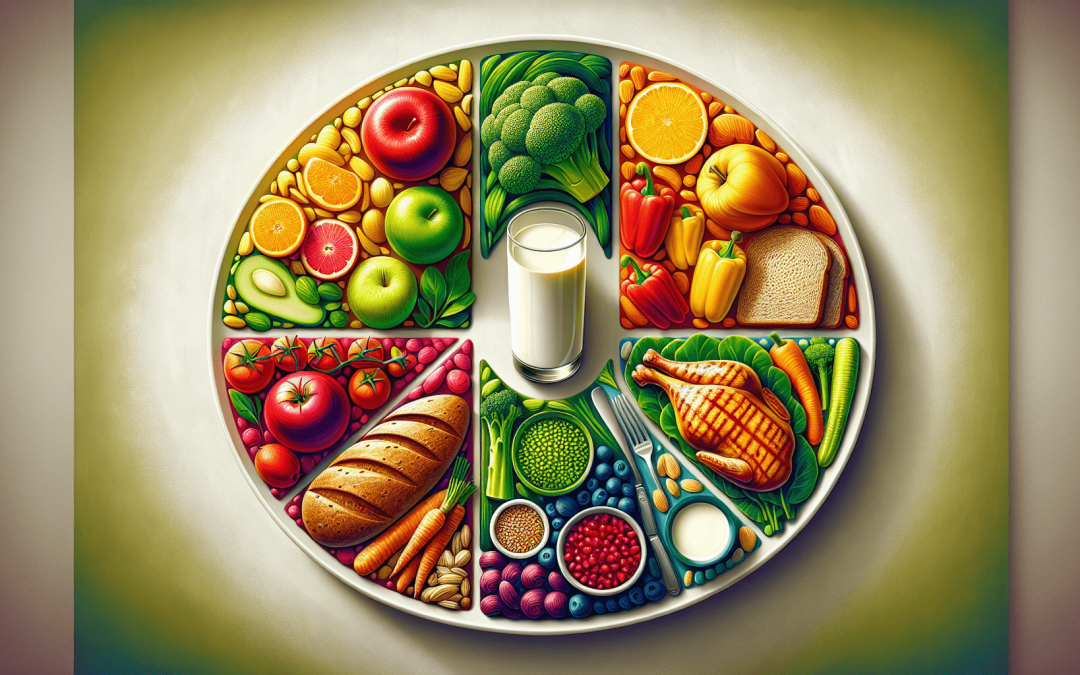Have you been wanting to make a change in your lifestyle and start some healthy habits, but not sure where to begin?
Making positive changes in your life can seem overwhelming, but it doesn’t have to be. By incorporating some simple healthy habits into your daily routine, you can start feeling better physically and mentally. In this article, we will explore some easy ways to kickstart your journey to a healthier you. Let’s get started!
Eating a Balanced Diet
Eating a balanced diet is essential for your overall health and well-being. It provides your body with the necessary nutrients to function at its best. If you’re not sure where to start, here are some basic principles to keep in mind:
| Food Group | Daily Servings | Examples |
|---|---|---|
| Fruits | 2-3 servings | Apples, bananas, berries |
| Vegetables | 3-4 servings | Broccoli, carrots, spinach |
| Protein | 2-3 servings | Chicken, tofu, beans |
| Whole Grains | 4-5 servings | Brown rice, quinoa, oats |
| Dairy | 2-3 servings | Milk, yogurt, cheese |
Remember to include a variety of colors in your meals to ensure you’re getting a wide range of nutrients. Eating whole, unprocessed foods is always a great choice when it comes to your diet.
Staying Hydrated
Another crucial aspect of a healthy lifestyle is staying hydrated. Water is essential for many bodily functions, such as digestion, circulation, and temperature regulation.
Aim to drink at least 8-10 cups of water per day, but this can vary depending on your activity level, climate, and overall health. If you struggle to drink enough water throughout the day, try carrying a reusable water bottle with you and set reminders to take sips regularly.
Getting Enough Sleep
Sleep is often overlooked but plays a vital role in your overall health. Not getting enough quality sleep can lead to a variety of health issues, including weight gain, weakened immune system, and mental health issues.
For most adults, aim for 7-9 hours of sleep per night. Establishing a bedtime routine, such as turning off screens an hour before bed and creating a relaxing environment, can help you get better quality sleep.

Regular Exercise
Regular physical activity is key to maintaining a healthy lifestyle. It helps improve your mood, increase energy levels, and reduce your risk of chronic diseases.
Find activities that you enjoy, whether it’s walking, dancing, swimming, or cycling. Aim for at least 150 minutes of moderate-intensity exercise per week, such as brisk walking or cycling, or 75 minutes of vigorous exercise, such as running or aerobics.
Managing Stress
Stress is a common part of life, but chronic stress can have a negative impact on your health. Finding ways to manage stress is essential for maintaining a healthy lifestyle.
Incorporate stress-reducing activities into your routine, such as meditation, deep breathing exercises, yoga, or spending time in nature. It’s important to find what works best for you and make time for self-care.
Limiting Alcohol and Avoiding Smoking
Alcohol consumption and smoking can have detrimental effects on your health. Limiting your alcohol intake and avoiding smoking altogether can significantly improve your overall well-being.
If you choose to drink alcohol, do so in moderation. For women, this means up to one drink per day, and for men, up to two drinks per day. If you smoke, seek support to help you quit, as smoking cessation can greatly reduce your risk of developing health issues.
Regular Health Check-ups
Regular health check-ups are crucial for monitoring your overall health and catching any potential issues early. Make sure to schedule regular visits with your healthcare provider for screenings and preventive care.
| Age Group | Screenings |
|---|---|
| 18-39 | Blood pressure, cholesterol, weight |
| 40-64 | Blood sugar, mammograms, colonoscopy |
| 65+ | Bone density, hearing, vision |
Don’t neglect your mental health either. If you’re struggling, don’t hesitate to reach out to a mental health professional for support and guidance.
Surrounding Yourself with Positivity
The people you surround yourself with can have a significant impact on your mental and emotional well-being. Surround yourself with positive, supportive individuals who encourage and motivate you.
Building a strong support system is essential for your mental health. Whether it’s friends, family, or a community group, having people you can rely on can help you navigate life’s challenges and celebrate your successes.
Tracking Your Progress
Tracking your progress is a great way to stay motivated and accountable on your journey to a healthier you. Whether it’s tracking your meals, exercise, water intake, or mood, finding a method that works for you can help you stay on track.
There are many apps and tools available to help you track your progress, such as fitness trackers, food diaries, and mood journals. Find what works best for you and make it a part of your daily routine.
Final Thoughts
Incorporating healthy habits into your daily routine doesn’t have to be complicated. By making small changes over time, you can create a healthier lifestyle that works for you. Remember to be patient with yourself and celebrate your successes along the way.
If you ever feel overwhelmed or unsure about where to start, don’t hesitate to seek support from healthcare professionals, friends, or family. Your health and well-being are worth investing in, so take the time to prioritize yourself and your health. Here’s to a healthier, happier you!











